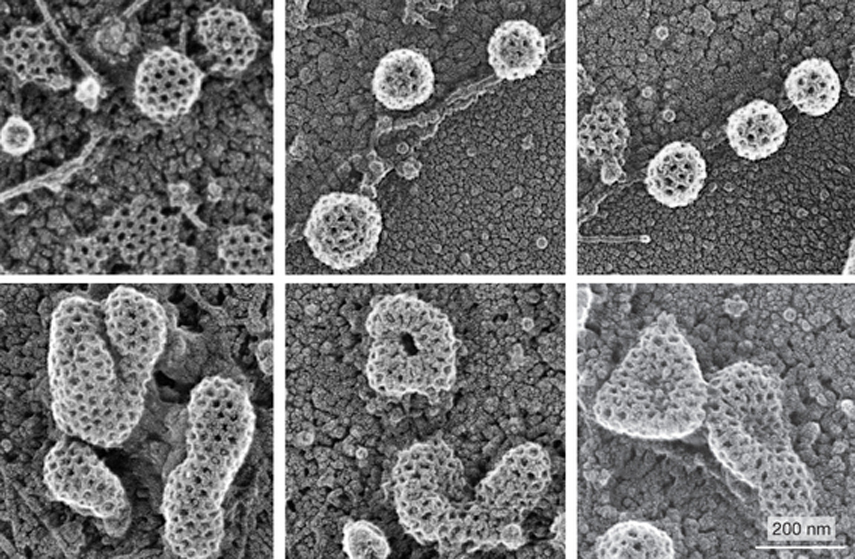In fruit fly embryos, early development begins with synchronous nuclear divisions, which are divisions in which the nuclei divide without going through cytokinesis. After 13 rounds of mitosis, the large multinucleate syncytium pauses in cycle 14 and undergoes cellularization to form plasma membranes around nuclei. During this transition, the transcription of the embryo’s own genes begins as the maternally-contributed genetic material (RNA) is degraded. A recent paper describes evidence that this switch to zygotic transcription is the trigger for the pause in cycle 14 and cellularization. Sung and colleagues found a novel mutation in the RNPII215 gene that results in a reduced number of nuclear divisions, as well as premature zygotic transcription and cellularization. The number of nuclear divisions in this mutant depends on zygotic transcription and Vfl, a transcription factor that controls many early zygotic genes. In the images above, a mutant early fly embryo (bottom) has fewer cells due to the reduced nuclear divisions, compared to a normal embryo (top). A nuclear protein is in green, and the pair-rule protein Eve is in red.
Copyright ©2013 Elsevier Ltd. All rights reserved.






